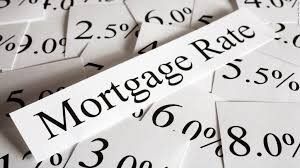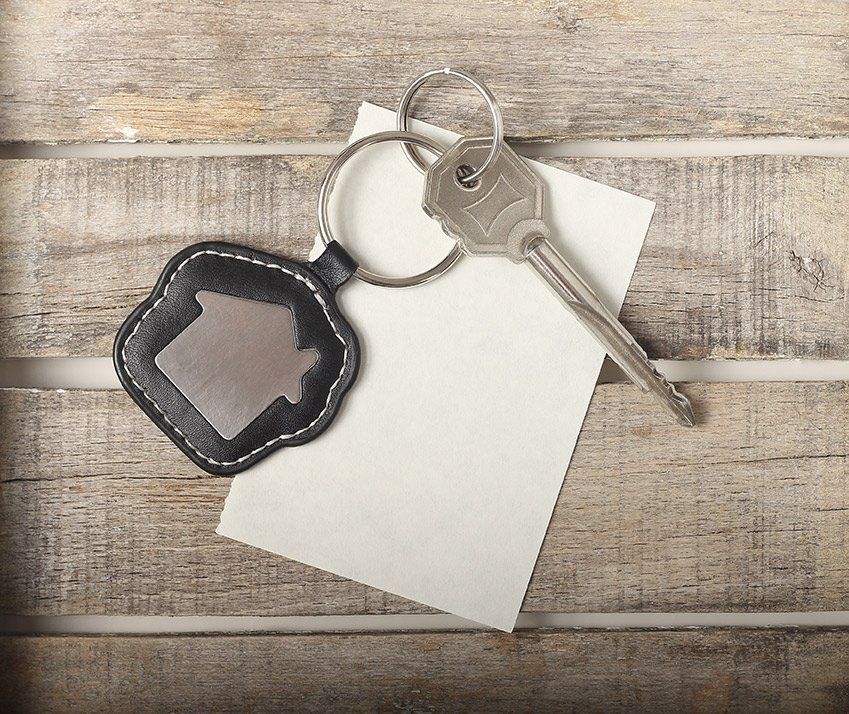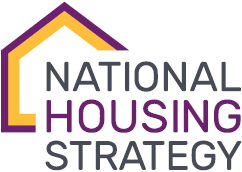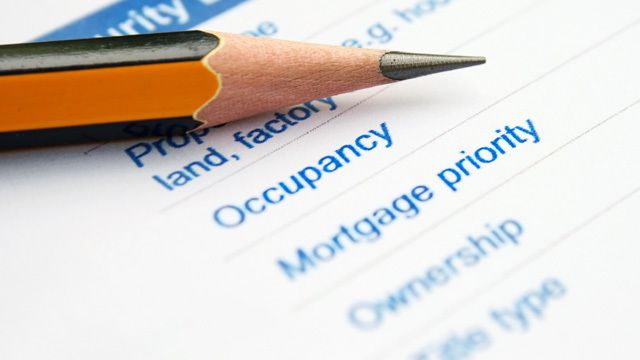
How is your credit score calculated? It is a complex answer and, as such, common myths persist. Today, we are going to help you get a better understanding of your credit score and how to make the grade by busting the most common credit score myths!
MYTH #1: Too many credit cards will hurt my credit score
The reality is that cancelling healthy, active cards or accounts hurts more than having too many. When you cancel a card, all your payment history is lost as well as the type of credit granted. While you may think having a couple credit cards is extreme, the average Canadian has TEN credit sources. What many Canadians don’t realize is that lenders want to see a history of credit; they want to see payments made on time. In addition, lenders also want to see balances maintained at no more than 70% of your credit limit in use. So, if you have a $10,000 credit card, you don’t want to owe more than $7,000 on it at a time.
MYTH #2: Avoid Using Credit Cards If You Want to Build Credit
It is easy to think that different forms of credit matter more than others, but that is simply not the case. In fact, all lenders want to see is a history of credit and payments made on time. This is what will build your credit score and, eventually, give you the ability to qualify for financing. A history of on-time payments and manageable balances shows the lender that you are a promising investment and not likely to default.
MYTH #3: Paying Monthly Utilities Builds Credit
Unfortunately, paying utilities does not build credit. In fact, these providers only check your credit score to determine creditworthiness; they don’t report your payment history to the bureau. Unless you are late to pay, that is. The other organizations that only report on default are municipalities and vehicle insurance providers, so make sure you keep these payments up-to-date. Be sure to pay any traffic tickets and bylaw infractions too!
MYTH #4: I Can’t Do Anything Once a Payment is Late
Don’t be discouraged. Lenders understand that you are only human and, in many cases, they are often willing to work with you if there is a late payment. If they are notified within a timely manner, a late payment can be easily reversed. Just be careful not to make a habit of it.
MYTH #5: Checking My Credit Score Will Decrease It
No exactly. There are two types of credit inquiries: soft and hard. A soft inquiry occurs when you pull your own credit report. Credit card companies also pull this type of inquiry when marketing pre-approval offers. Soft inquiries do not affect your credit score.
A hard inquiry, on the other hand, is triggered by the applicant when submitting a loan or credit card applications. As a result, hard inquiries will affect your credit score slightly as they are included in the calculation done. Recording the number of inquiries a consumer has on the credit report allows potential lenders to see how often a consumer has applied for new credit; this can be a precursor to someone facing credit difficulty. Too many inquiries could mean that a consumer is deeply in debt and is looking for loans or new credit cards to bail themselves out. Another reason for recording inquiries is for preventing identity theft. Hard inquiries that aren’t made by you could possibly be from a fraudster trying to open accounts in your name; therefore only individuals with a specific business purpose can check your score. Creditors, lenders, employers and landlords are some examples of approved business people. The inquiry only appears on the credit report that was checked.
In addition, hard inquiries remain on all credit reports for two years, after which they are removed. Soft inquiries only appear on the report that you request from the credit bureaus and will not be visible to potential creditors.
Credit score plays a vital role when it comes to potential financing for car loans, mortgages, or even personal loans. It is important to recognize good credit habits now and maintain them for a higher credit score today, and better chance of financial approval in the future.

Steps to Repair and Improve Your Credit
Though
credit scores aren’t always an indicator of financial health, they are
used in a variety of ways that could have a major impact on your life.
Interest rates (including mortgage rates) are almost always determined
by your credit score. Some employers & landlords may require a
credit check to see if you have past credit issues.
Remember this is your credit report, not your “I’m Fiscally Responsible”
report. Lenders want to know how you have historically handled credit
in order to determine if you are a good credit risk. Higher risk =
higher rates!
The Rule of Two:
• You should always have 2 “tradelines” going. This can be a combination
of 2 credit cards OR a credit card and a line of credit/ loan etc.
• Credit lines should have a minimum $2,000 limit
• Minimum of 2 years old
So, if your credit score sucks, it could be costing you.
The good news is, you don’t have to live with bad credit forever. There
are plenty of things you can do to improve your credit score. Use the 9½
tips below, to improve your credit score
#1)
Know Your Credit Score and Credit History
Request a free copy of your credit report from both of Canada’s credit
agencies (TransUnion and Equifax). You are legally entitled to one free
credit report yearly from each credit agency. Check out my BLOG How to Get a FREE Copy of Your Credit Bureau
#2)
Review both TransUnion & Equifax Reports for Any Errors or Discrepancies.
If you find any errors in your credit report, you should dispute them
with Equifax or TransUnion and request to have them correct any errors.
#3)
Pay On Time, EVERY time!
This might seem obvious, but you need to make your payments on time,
every time! This is crucial to repairing and maintaining your credit
rating. The largest percentage of your credit score is based on your
payment history!! Even being a couple of days late will have a negative
impact on your score. Staying current with your payments has a huge
positive impact. If you can’t pay the balance off in full, pay the
minimum amount on time!
#4)
Don’t Go Over Your Card’s Credit Limit
Going over your credit limit, even once will have a huge negative impact
on your credit score. You need to be aware of your credit limit and
your current debt levels to avoid this.
#5)
Pay Off Any Overdue Accounts ASAP
Paying off a collection account will not remove it from your credit
report, so do your best to avoid going to collections. If you have any
overdue accounts that have gone to collections, negotiate to pay them
off ASAP.
#6)
Reduce Your Debt
Easier said than done, but if you want to increase your credit rating,
you need to reduce your debt. The closer you are to your credit limit,
the lower your score. In a perfect world you only want to use about 30%
of your available credit. If you have a lot of credit card debt you
might consider a loan (with lower interest rates than the credit cards)
to consolidate your debts.
#7)
Limit Your Inquiries for New Credit
You lose points from excessive hard inquiries on your credit bureau. Any
attempts to take on multiple loans/credit cards will look bad in your
report.
#8)
Avoid Closing Credit Cards
Account age is a factor that reflects positively on your credit score.
Too many new accounts lowers your average account age and negatively
impacts your credit score. For the same reason, you may want to keep an
old account open, even if you are not actively using it.
#9)
Time is your Friend
When rebuilding your credit, time will be your best friend. The impact
of past credit problems lessens with time, so that a late payment from a
year ago will have much less weight than a late payment today. Get
current and stay current.
#9.5)
Protect Your Credit from Identity Theft
As more of our personal information gets circulated via the internet,
there’s more room for “bad people” to steal your personal details so
that they can make fraudulent purchases in your name. This can be
extremely damaging to your credit history. You can protect your credit
history from this by paying for a service that can alert you to fraud.
If you have any questions, contact a Dominion Lending Centres mortgage broker near you.
by Kelly Hudson

You may have heard that rates are changing, and that is true. They don’t call it war for nothing and you need an expert by your side!
Think of mortgage brokers as your loyal soldiers. What we are seeing is exactly what we anticipated when prime rate goes up and discounts go down. Confused? Don’t be, variable rates are based on prime and both Bank of Canada Prime and Bank Prime are different.
What the new discount means is what it means – they anticipate prime to go up higher.
With current regulations, borrowers qualify for more mortgages on a variable rates! This is a shift from the previous policy where more Canadians were having to take fixed rates to qualify for the most.
These new discounts on new mortgages getting taken out there discount is lower off of the bank’s prime rate- this does not apply to an existing mortgage
Did you notice earlier I said the bank’s prime rate, you would think they are all the same… right?
This is not the case. In November of 2016 one Canadian lender broke the trend of their counterparts and raised their internal prime to immediately impact their existing customers by adding to their amortization. This discount below was for new clients they increased the discount so it looked bigger.Lender who broke the trend prime Other lenders prime
3.65% 3.45%
Discount 1.15 Discount ranging from 1.06=.95%
It’s important to note – each lender has unique criteria to be met to get these offers: some only for purchases, some only with switches, some only certain amortizations, and some only certain property types. The list goes on!
Remember your broker shops all these lenders without bias, while protecting your credit score to assist you in finding the best one. It’s important that we evaluate the following criteria with these lenders- here is an example of three lenders:
Lender one
- Bank has a higher Prime than anyone else
- No change to payment
- Increases amortization which can put into effect a trigger clause- cash call in on mortgage or forced pre-payment and other costs such as appraisal at your expense
- Not portable
- Does have a 12 month penalty payback if getting a larger mortgage at new rates! Best one!
- Have to go to branch to lock in and then be subject to their IRD (usually 3-5% of balance pending where you are in your term).
- Based on history this lender is generally the first to raise their rates and last to decrease
Lender two
- Prime rate consistent with all lenders
- Change to payment so amortization doesn’t increase
- NO trigger clause
- Have to go to branch to lock in and face large IRD between 3-5%
- Not portable but will refund you within 6 months if the mortgage is larger and will get rate available at that time
Lender three
- Prime consistent with all lenders
- Change to payment so amortization doesn’t increase
- NO trigger clause
- lender will pay back penalty within 3 months of getting a larger mortgage with them
- your mortgage expert can assist you with lock in
- If you lock in they have the lowest penalties in the country to break your mortgage in the future, generally 1-1.5% of the balance
With seven-in-10 mortgages breaking before the term is over, this should be weighted very carefully.
Let me demonstrate the following:
A mortgage that gets locked in with first or second lender above at $500,000, by the third year the cost to break a mortgage will be between $15,000 and $25,000. With the third lender the cost would be between $5,000 and $7,500.
What to do with this info?
These new wars apply to new mortgages. If you have a mortgage with a discount less than .50, a renewal upcoming, looking at accessing your equity for home renovations or to consolidate debt and you have a variable rate, it may be time to run the numbers to see if taking a new variable rate mortgage is beneficial for you. One of the significant benefits of having a VRM is to get out at any time with only three months interest penalty (unless a restrictive product was taken for a better rate or had a sale only clause).
As you can see we have only scratched the surface in terms of the differences. There are many other differences and mainly you have to consider as a consumer, do you want to be calling a bank branch and play Russian roulette with the education level and sales goals of the person who guides you through deciding what to do with your biggest asset? Or would you rather have a Dominion Lending Centres mortgage professional who is in the front lines proactively guiding you and assessing the economic factors to give you personalized advice based on their experience and knowledge of the mortgage industry.
Depends on what you value most!
Angela Calla
As of January 16, 2017 the provincial government has introduced the B.C. Home Owner Mortgage and Equity Partnership program for First-Time Homebuyers needing help with their down payment.
Eligibility requirements for the new government first-time homebuyer down-payment loan program are:
• Have saved a down payment amount at least equal to the loan amount for which they are applying from government.
• Have been a Canadian citizen or permanent resident for at least five years.
• Have lived in B.C. for at least one year prior to the sale.
• Be a first-time buyer who has not owned an interest in any residential property anywhere in the world at any time.
• The home must have a purchase price of less than $750,000.
• The buyer must already be able to qualify for an insured high-ratio first mortgage for at least 80 per cent of the purchase price.
• The combined gross household income of all people on title must not be more than $150,000.
Applications are open for 3 years starting January 16, 2017 and ending March 31, 2020. For more information check out the link below:
https://housingaction.gov.bc.ca/tile/home-owner-mortgage-and-equity-partnership/







